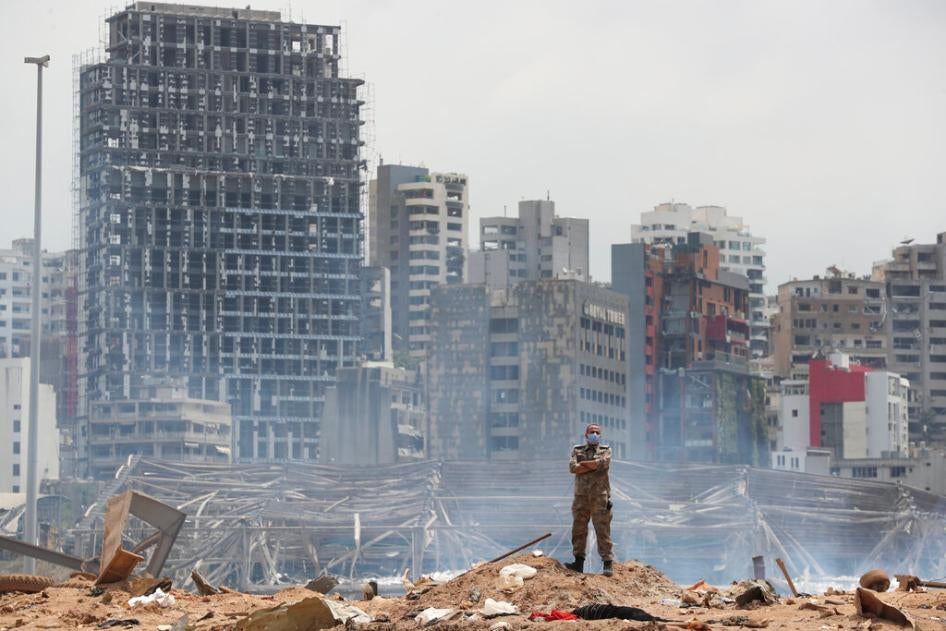We are deeply concerned that the responses provided by the Lebanese government during this UPR cycle fail to match the reality on the ground, where the Lebanese are facing the most drastic deterioration of rights in decades. While the government acknowledged the multiple crises that Lebanon is grappling with, it failed to mention that it is the Lebanese authorities’ corruption and their deliberate lack of effective policy action that has contributed to and prolonged these crises.
As the economic crisis has deepened, so too has the government’s repression and stifling of dissent. Yet, Lebanon rejected repealing its criminal defamation laws, and it rejected removing the jurisdiction of the inherently unfair military courts over civilians.
As in its previous UPR cycles, Lebanon has rejected key recommendations on critically important human rights issues, including promoting equal rights for men and women, prohibiting discrimination on the basis of gender and sexual orientation and identity, criminalizing marital rape, banning child marriage, amending the labor code, and abolishing the death penalty.
Although Lebanon accepted recommendations around conducting an independent investigation into the August 4 explosion in Beirut’s port, we have documented a range of procedural and systemic flaws in the domestic investigation that render it incapable of credibly delivering justice.
The human rights situation in Lebanon has sharply declined since its last UPR in 2015, and the Lebanese authorities have shown that they are either unwilling or incapable of fulfilling the aspirations of millions of Lebanese who went down to the streets in October 2019. Its time for the Human Rights Council to heed the calls of the Lebanese public for accountability through establishing an independent fact-finding mission into the Beirut port explosion to clearly demonstrate that the decades of abuse and impunity by the Lebanese authorities have come to an end.









